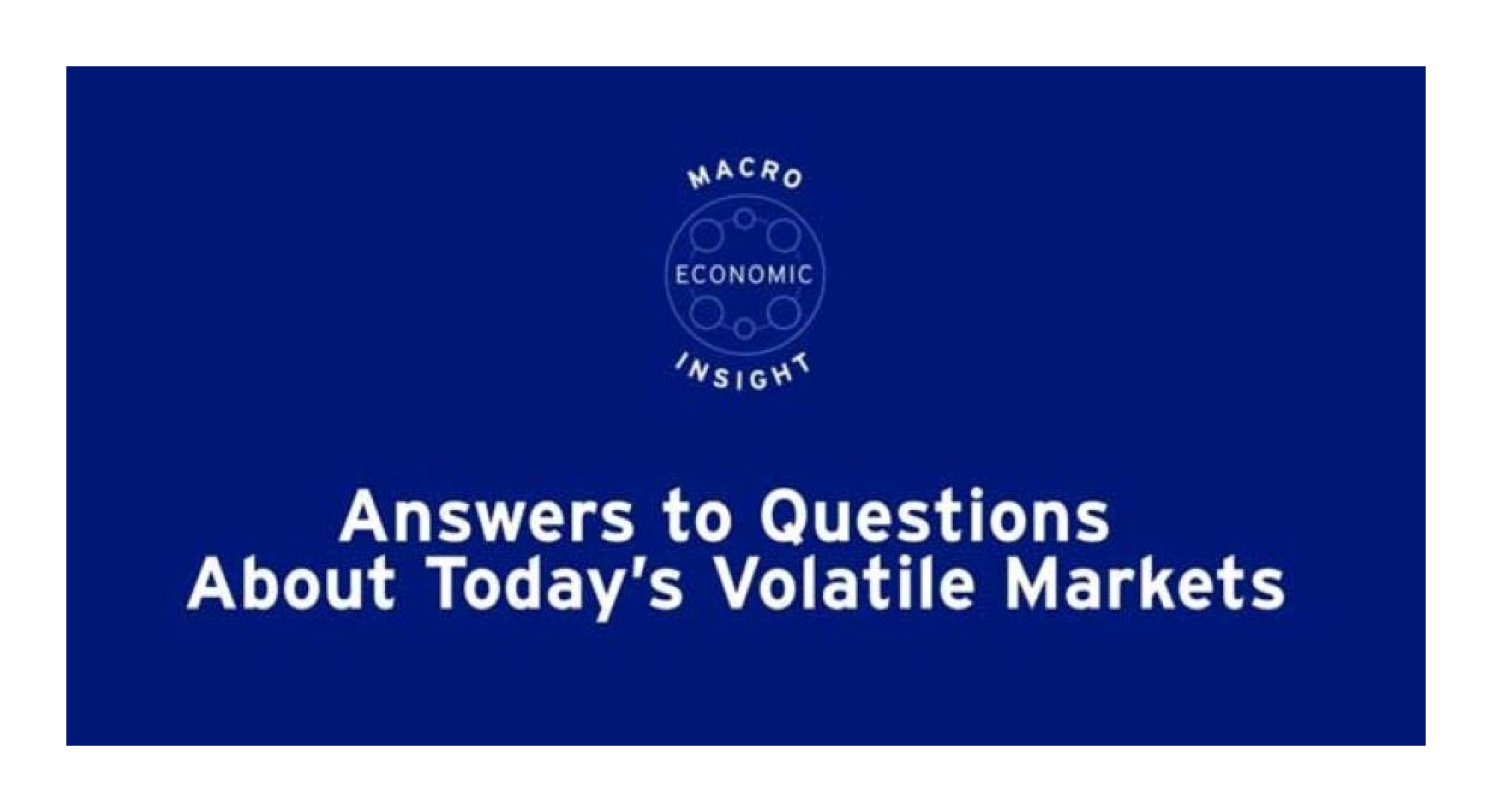by Matt Peden, Vice President and Portfolio Manager, Invesco Advisers, Inc., Invesco Canada
The recent market sell-off was most pronounced in lower quality, more economically sensitive areas of the market, such as energy, materials, financials, industrial manufacturing and travel related businesses (i.e., airlines, cruise operators, etc.), which are areas where we find an extremely limited number of investible businesses.
In addition, the sell-off also led to isolated situations in March where high-quality businesses serving specific industries, such as restaurants, real estate and fitness clubs, which were directly impacted by shelter-at-home orders reached compelling valuation levels from a long-term perspective and we added to such holdings.
However, following the dramatic market rebound, such opportunities are now elusive. Conversely, shelter-at-home and social distancing requirements actually worked to the advantage of certain e-commerce focused marketplaces, food delivery services and online gaming and entertainment companies that we hold. Consequently, the market prices of these businesses were largely unaffected.
Considering the dramatic market rebound over the past few weeks, coupled with factoring in realistic expectations as to the virus’s impact on businesses and individuals, we as long-term focused investors have experienced challenges reconciling the current market valuations of many businesses, with the underlying mid- to long-term growth, margin and after-tax earnings prospects of such businesses.
As we examine the intrinsic business values of companies we would be willing to own at an appropriate valuation, in comparison to their respective current market values, we have concluded that many of these businesses are not presently compelling investments. Assuming that this sample is representative of the broader global equity markets in general leads us to the conclusion that caution is warranted following the recent sharp recovery.
There are several fundamental determinants of long-term business value, including revenue growth potential, margin expectations, capital intensity and corporate tax rates (which heavily impact after tax earnings). For most businesses the novel Coronavirus pandemic should be reasonably expected to have a noticeable negative impact on all of the aforementioned business value drivers. The magnitude of the impact will be dependent on the time required for societies to gain widespread immunity, either through a viable vaccine or herd immunity, the duration of government imposed shut-down measures and the extent to which the current situation influences longer-term consumer behaviour.
With most nations discussing only a gradual easing of restrictions beginning in May, leading to an average two month shutdown in many countries, the Coronavirus may have already generated the most acute short-term economic downturn of the post-World War II era. The near-term economic impacts of mass business closures and commensurate unemployment should not be underestimated. At no point during the financial crisis did entire industries shutdown for months at a time, forcing layoffs of unprecedented scale and the loss of unrecoverable revenues in service-based industries.
Moreover, beyond the near-term severe impacts on businesses and consumers of the shutdowns, with a viable vaccine believed to be at least 12 to 18 months away, widespread immunity remains elusive and the threat of second and third waves of infection (similar to those observed in Singapore and Japan) will persist following any easing of initial shelter-at-home and social distancing measures. To assume that consumers will rush back to occupy crowded restaurants, bars, movie theaters, shopping malls, hotels and airplanes, while the risk of infection from a deadly virus looms large, seems naive and overly optimistic. Hence, the virus will likely have a mid-term impact on consumer behaviour, and thereby, corporate revenues and margins well beyond any easing of government mandated restrictions.
In recognition of the gravity of the crisis, governments around the world considerably expanded fiscal support for individuals, small businesses and even corporations in the most severely impacted industries. However, this fiscal stimulus, unprecedented in size and scope, may elevate government debt to levels not witnessed since World War II and create lasting budget deficits due to challenges in unwinding social benefits after the crisis. As government debt must eventually be serviced and budget deficits must ultimately be funded from sources other than more borrowing, corporate and/or individual taxation is likely to increase post-crisis. Just as the 2017 U.S. corporate tax rate reduction from 35% to 21% had a meaningful positive impact on the value of publicly listed U.S. domestic focused businesses, a future long-term corporate tax increase to fund immense current stimulus programs, could have an equal and opposite effect on equity values. Alternatively, any increase in personal income tax rates would reduce personal disposable income and constrain long-term consumer spending.
As outlined above, even long-term oriented investors’ estimates of intrinsic business values should be revised downwards, due to the coronavirus-induced crisis’s immediate impact on near- and mid-term revenue growth and margin potential, coupled with the long-term potential impact of higher corporate and personal income tax rates to fund stimulus and social benefits programs.
The S&P 500 is currently near March 2019 levels and the MSCI World is at January 2019 levels.1 It seems unrealistic to argue that current intrinsic business values should be equal to or higher than underlying values in early 2019, based on reasonable estimates of future revenue growth, margins and after-tax earnings. Consequently, prevailing market prices, particularly within the U.S. equity markets, may be incorporating overly optimistic assumptions.
As unconstrained active investors we continue to seek and exploit any dislocations observed between realistic corporate revenue, margin and after-tax earnings prospects and current market prices. Through our international company research coverage, we closely monitor the performance and value of many U.S. peer competitors, customers and suppliers. This enables our team to make rational comparisons across regions, based on long-term businesses potential relative to market prices.
Given the heightened severity of the coronavirus situation in the U.S., the more exaggerated market recovery witnessed across U.S. equities and the greater magnitude of stimulus measures enacted within the U.S., we are presently seeing more attractive investment opportunities among the international companies we follow in comparison to their U.S. peers.
In other words, the disparity between business values (based on rational expectations in the current crisis) and market prices, appears most pronounced in U.S. equity markets. In many cases, I believe current U.S. equity prices reflect overly optimistic assumptions. Moreover, the potential for longer-term corporate and personal tax rates to increase appears higher in the U.S. relative to other regions, due to the more extensive stimulus measures enacted and lack of cross-party political support for the initial corporate tax rate reduction in the U.S.
In addition to the disparity between U.S. and international valuations, we continue to see a discrepancy between large-cap and small-cap valuations, with smaller-cap valuations continuing to remain more attractive. Many small-cap companies with relatively stable revenue and earnings streams materially declined during the March downturn, perhaps due to limited liquidity coupled with forced sellers, yet recovered to a much lesser extent than their large-cap peers. As optimism grew during the rebound, investors likely rushed into many of the largest and most liquid companies, potentially overlooking attractive opportunities in the small-cap space.
Our unconstrained, all-cap international equity strategy is free to avoid companies and areas where excessively optimistic underlying business performance assumptions are imbedded in current market prices, by focusing on a select number of rationally priced, strong-performing and well-protected businesses. This freedom is even more essential at times when there may be a general disconnect between underlying business fundamentals and equity market prices.
This post was first published at the official blog of Invesco Canada.
















